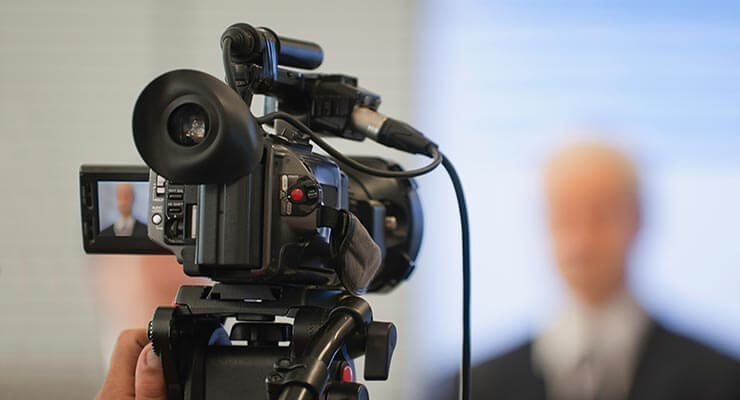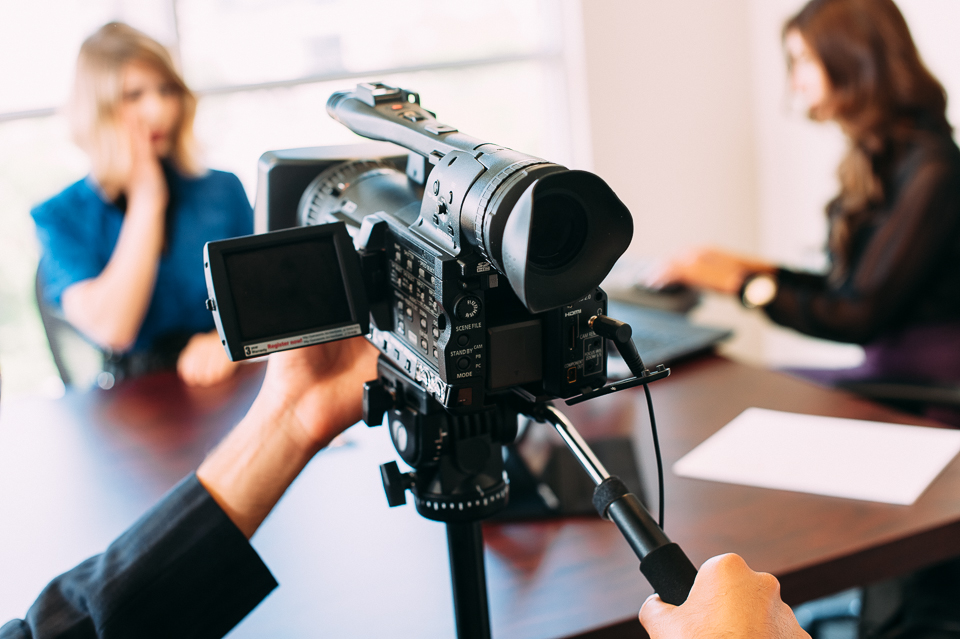Customized Legal Videography for Your Legal Needs.
Customized Legal Videography for Your Legal Needs.
Blog Article
The Function of Lawful Videography in Depositions and Trials
Lawful videography has actually emerged as an important device in both depositions and trials, supplying a complex technique to recording witness statements. As legal professionals significantly identify its worth, it prompts a deeper examination of how these aesthetic records can influence juror perceptions and test end results.
Significance of Lawful Videography
Legal videography plays an essential duty in the documentation and discussion of depositions and trials. This customized field combines technological abilities with lawful knowledge to create a reliable document of proceedings that can significantly affect instance results. The visual aspect of lawful videography enhances the understanding of witness testimony, allowing jurors and judges to observe not only the spoken words however likewise the demeanor, feelings, and body language of the witnesses.

The relevance of lawful videography expands past the courtroom; it likewise plays an essential function in protecting evidence for future recommendation, whether for appeals or additional legal action. Its assimilation into the legal process is crucial for making sure a reasonable and exact representation of the facts, inevitably contributing to the quest of justice.

Refine of Legal Videography
While capturing the subtleties of depositions and trials, the procedure of lawful videography includes several critical actions that make certain premium, exact recordings. At first, a specialist lawful videographer prepares by evaluating the case materials and comprehending the specific needs of the deposition or test. This prep work consists of acquainting themselves with the participants and the context, which assists in catching relevant details.
On the day of the recording, the videographer establishes up the required tools, which commonly includes high-def electronic cameras, microphones, and correct lights. Ensuring optimum angles and audio top quality is critical, as it directly influences the efficiency of the recording. The videographer interacts with attorneys and participants to develop methods, ensuring that everybody understands the recording procedure.
During the deposition or trial, the videographer carefully tapes the process, paying close focus to both verbal and non-verbal signs. legal videography. This includes capturing the disposition and reactions of witnesses and attorneys. After the session concludes, the videographer might modify the video footage for clearness and compliance with legal standards, generating an end product that precisely shows the procedures for future reference and use in lawful contexts
Benefits in Depositions
The incorporation of videography in depositions supplies countless benefits that improve the overall procedure of collecting evidence. One primary advantage is the capability to capture witness testaments with aesthetic and auditory integrity, offering a more accurate depiction of the witness's temperament, tone, and body movement. This multidimensional approach enables attorneys and juries to analyze trustworthiness better than typical written records alone.
In addition, videographed depositions function as a powerful tool for preserving statement. Must a witness come review to be unavailable for trial, their recorded deposition can be played in court, guaranteeing that their evidence continues to be accessible and appropriate. This aspect substantially reduces the risk of shedding crucial information that can impact case outcomes.
In addition, using lawful videography advertises much better prep work for lawyers. Assessing video footage allows lawful teams to evaluate and refine their strategies, recognizing staminas and weak points in their situations. This preparatory benefit can bring about more engaging presentations in court.
Lastly, videography enhances the total professionalism and reliability of the deposition process, instilling confidence in customers concerning the thoroughness of their legal depiction. By leveraging technology, lawful experts can substantially enhance the performance of depositions.
Effect On Tests
In lots of tests, the combination of videography can significantly affect the discussion of evidence and the jury's perception. Legal videography captures witness testaments and vital evidence in a vibrant format, permitting jurors to involve with the material on numerous levels. This aesthetic part enhances from this source the storytelling facet of a test, supplying context and psychological resonance that standard text-based proof might lack.
Additionally, video clip recordings can serve as effective devices for impeachment during interrogation. When discrepancies emerge in between a witness's prior statements and their court testament, video evidence provides an objective reference that can guide jurors' point of views. This immediacy and quality can bolster the credibility of a party's story while simultaneously threatening opposing disagreements.
Furthermore, using videography can aid improve complex details, making it more obtainable to jurors that may struggle to realize intricate information presented only with spoken testimony. By combining visuals with auditory information, lawful videography can improve retention and understanding, eventually affecting the jury's decision-making procedure. Therefore, the impact of videography in trials expands beyond simple aesthetic appeals; it plays an important duty fit the legal landscape and outcomes.
Future Trends in Legal Videography
As we look towards the future of lawful videography, numerous arising trends assure to reshape its duty within the courtroom. One significant trend is the assimilation of expert system (AI) in browse around this site video analysis and editing - legal videography. AI can enhance the process of recognizing crucial moments in tape-recorded depositions, allowing lawyers to quickly access pertinent content, therefore boosting performance in situation preparation
Furthermore, the rise of virtual truth (VR) and boosted fact (AR) innovations is anticipated to change just how jurors experience evidence. By immersing jurors in a simulated environment, these technologies can provide a more profound understanding of complicated situations, resulting in more enlightened considerations.

In addition, the increasing need for remote depositions, accelerated by the COVID-19 pandemic, will likely continue. Legal videographers will need to adjust to brand-new software program and systems to guarantee high-grade recordings in online settings.
Lastly, the expanding emphasis on data safety and security will demand more stringent procedures for keeping and sharing video clip proof. As the lawful landscape evolves, lawful videographers must stay abreast of these fads to keep their relevance and efficiency in the judicial procedure.

Final Thought
In recap, lawful videography offers a crucial function in the judicial process, enhancing the integrity of depositions and trials. As innovation continues to progress, legal videography is poised to additional change its duty within the lawful landscape.
Report this page